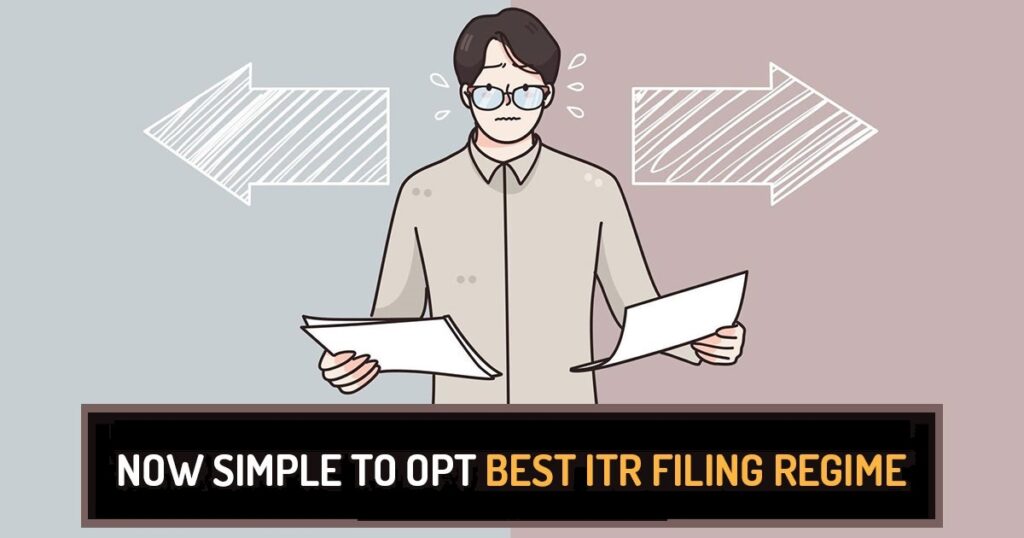
Do you have any questions about the updated new tax regime’s potential benefits for your salary income? To improve the appeal of the new tax structure to taxpayers, changes have been proposed in the Union Budget 2024-25. The low-to-mid-income earners (annual income up to Rs 15 lakh) and those with incomes of Rs 5 crore and beyond are projected to benefit more from the new tax system.
The tax rebate u/s 87A is the same as available for A.Y 2024-25 as given for A.Y. 2023-24 under the Old and New tax regime but due to a change of slab under 115BAC Rs.10,000/- tax benefit is extended up to a total Income of Rs.15,00,000/-
Therefore, under the revised new tax regime, people with taxable income up to Rs 7 lakh will no longer be required to pay taxes. In contrast to the previous tax system, which required people to make specific tax-saving investments like PPF, EPF, or NPS to reduce their taxable income, the new tax system does not provide these alternatives.
According to the revised new tax system, salaried employees with incomes up to Rs 7.75 lakh are eligible for a standard deduction of Rs 75,000. This qualifies you under the new tax system for a tax rebate on income up to Rs 7 lakh.
Under the newly revised tax slabs, a person who was previously required to pay income tax of Rs 59,800 (including cess) at an income level of Rs 7.75 lakh will no longer be subject to paying any tax. Consequently, at this income level, there is a Rs 59,800 tax savings.
The tax bill would have been Rs 23,400 (including cess) if this person had chosen the old tax regime and claimed Section 80C deductions of Rs 1.5 lakh, Section 80D deductions of Rs 25,000 for medical insurance premiums, and a standard deduction of Rs 50,000. For those making income up to Rs 7.75 lakh per year in salary, the newly revised tax regime is advantageous.
Revised New Income Tax Regime
What if, however, your yearly income is in the range of Rs. 7.75 lakh and Rs. 15.75 lakhs? If you are unable to fully utilize the various deductions, such as sections 80C, 80D, and 80E (interest paid on education loan), as well as the tax exemptions, such as HRA, LTA, and Section 24, the revised new tax regime will be advantageous for you (interest paid on housing loan).
Tax Deductions on INR 10 Lakh Income
If you earn Rs 10 lakh per year, your total deductions and exceptions must be greater than Rs 3 lakh for the old tax regime to be advantageous to you. Otherwise, the new tax regime as updated is more effective.
Tax Deductions on Income INR 12.5 Lakh
To make the former tax regime more favourable for persons with an annual income of Rs 12.5 lakh, the total deductions and exemptions claimed must be greater than Rs 3,62,500. Otherwise, transition to the revised new tax regime.
However, if your yearly income exceeds Rs. 15 lakh, the amount of income tax that must be paid is the same under both tax systems, provided that you take advantage of all the deductions and exemptions that were available under the previous system. It would be preferable to transfer to the new tax system to receive a bigger benefit if you are unable to claim these deductions and exemptions.
Read Also: Zero Tax on Salary Income INR 20+ Lakhs? Legal Way Here
For the extremely wealthy, the Budget 2023 has lowered the surcharge rate under the new tax system from 37% to 25%. The effective tax rate will therefore decrease for those with incomes above Rs 5 crore from 42.74% to 39%. However, under the previous tax system, it stays at 42.74%.
Those with an income of Rs 5 crore can save Rs 87,750 in taxes under the revised system compared to the previous one. Please be aware that the updated new tax system would apply a 25% surcharge whenever the income level reaches Rs 5 crore.
As a result, people with incomes over Rs 5 crore will have bigger savings. The tax savings for people making Rs 10 crore per year is Rs 38 lakh. It is assumed that the person is claiming a standard deduction of Rs 50,000 and a deduction of Rs 1.5 lakh under section 80C.